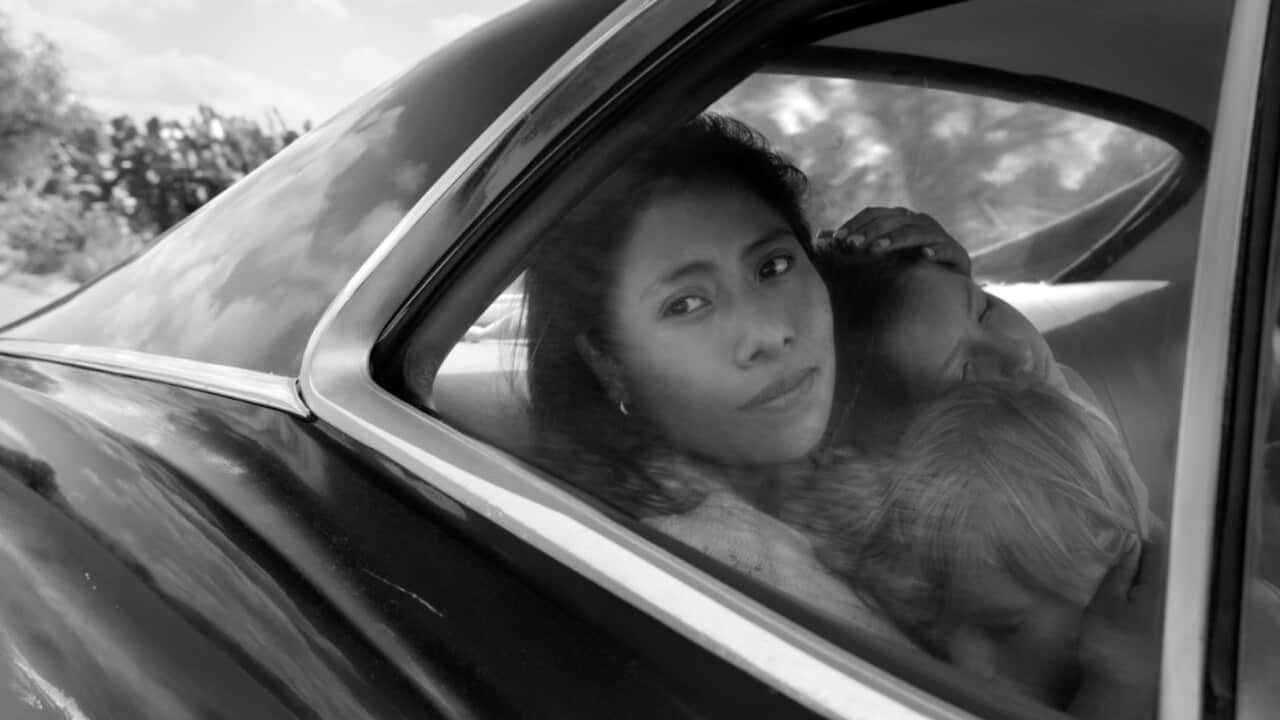At first glance, it might look as if the 2019 Academy Awards were a little ho-hum. With no host, little sizzle, and falling ratings, it would appear the shine was well and truly off the golden statue. Gone was the dramatic protesting and sombre black of last year’s awards season. Gone too, were the activist dates, and many of the #Timesup pins and paraphernalia. But in their place, something bigger - and perhaps more lasting – has begun to bud: an authentic commitment to diversity.
Ruth E. Carter became the first African American woman to win for costume design -- for Black Panther. Chinese-Canadian Domee Shi won best animated short for Bao, an adorably weird story about a dumpling that comes to life. Regina King won for Best Supporting actress, in If Beale Street Could Talk, a film based on the novel by black novelist, activist and intellectual, James Baldwin.
Mahersala Ali won his second Oscar for best supporting actor in Green Book. The movie also won best picture and best screenplay – a controversial choice, given the fact that many opposed the film for its “white saviour” narrative and general tone deafness (Tony really introduced Don to fried chicken and Aretha Franklin? Really?).
Moving right along.
Period. End of Sentence, about the stigma young women in India face around menstruation, and their lack of access to sanitary products, won best documentary short subject. Spike Lee won after five nominations, for best adapted screenplay for BlacKkKlansman. Roma, a powerful story about women, class and race, won best director, best cinematography and best foreign film. won best actor for his portrayal of a gay man who died too young of AIDS.
With the exception of Green Book, which got halfway there, these wins are for narratives about people who are usually pushed to the margins in American cinema. But this year, a large amount of Oscars were handed out to people for telling the untold stories, and featuring people normally considered invisible.
And then there was Olivia Colman, an English actress who garnered the surprise win of the night, for her portrayal of Queen Anne in The Favourite. A ruler who appears woefully out of her depth, a person with little-to-no understanding of politics outside of rank manipulation; a puppet put in place by the wealthy, and surrounded by corrupt sycophants, who appeal, not to her brain, but her extraordinarily fragile ego.
When looked at through the lens of today’s political climate, Colman’s win doesn’t seem like that much of a surprise at all. But her Oscar was not the only subliminal middle finger to the Trump administration tonight.
A certain colour dominated the red carpet, and though it might have not been an organised choice, like the black of last year, it is difficult not to look at it as merely the hue of the moment. I’m speaking of course, about the colour pink. Bright and pale, frothy and dramatic, tulled and layered and unapologetically swathed over the shoulders of Helen Mirren, Frances McDormand – who teamed her crimson gown with yellow birkenstocks - Angela Bassett, Maya Rudolph, Gemma Chan, Kacey Musgraves, Sarah Paulson, Linda Cardellini, Lisa Bonet and her husband, Jason Moma who wore his in pale velvet –with a matching scrunchy. It reminds me of what chief fashion critic for the , Vanessa Freidman, wrote this about Nancy Pelosi’s choice of a bright pink dress on the day the Democrats took back the house last month,
It reminds me of what chief fashion critic for the , Vanessa Freidman, wrote this about Nancy Pelosi’s choice of a bright pink dress on the day the Democrats took back the house last month,

Helen Mirren and Jason Momoa in matching pink at the 2019 Oscars. (Getty Images) Source: Getty Images North America
“She knew it would make her stand out in what was still a room full of dark suits, and because of the symbolic nature of the occasion: a colour traditionally associated with delicate femininity had become a colour associated with a seat of power. That’s a strategic and savvy choice.”
Pink was the colour of the pussy hats a record number of women, (and men) –an estimated 400,000 in the US, and up to 5 million worldwide - chose to wear in the biggest protest in Washington since the 1960s. The knitted “pussy” hats, with their tiny feline ears, formed a sea of cotton candy in Washington DC. They were a statement against Donald Trump’s misogyny, his racism, his homophobia and his disregard of minority groups, but they were also, in many ways, a wake for the defeat of Hillary Clinton. On January 20 2017, it became the colour of resistance.
Since Trump’s inauguration, the US, and the world, has seen not a small amount of political galvanisation, especially for those whom Trump targeted.
It’s undoubtedly true that fashion is bending all kinds of rules regarding gender, but these gender norms – bent so beautifully by in his full length tuxedo gown – go hand in hand with the current cultural shift in acceptance and celebration of LGBTIQ visibility. That’s why more ladies - Amy Poehler, Awkwafina, Melissa McCarthy (replete with cape!), Elsie Fisher among them, turned up in tuxedoes.
Would we have seen any of this had Clinton won that election? It’s hard to say. Progress swings like a pendulum, and it usually takes an outrageous, unfathomable act to generate a wave of political backlash. A backlash that began with the Pussy March, rolled over Weinstein and other predators to become #MeToo, then #TimesUp, and is, at long last, trickling in to the Oscars.





